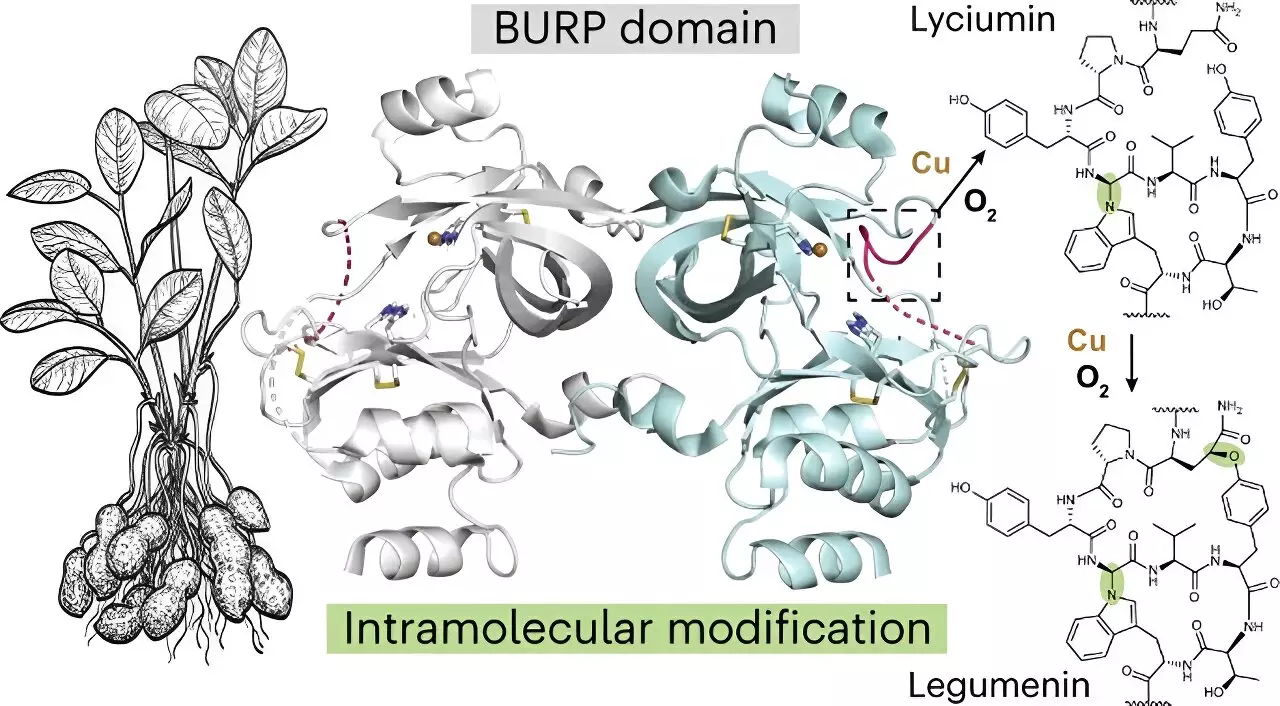University of Michigan researchers are making headlines with their recent discovery in plant biochemistry, specifically in the area of cyclic peptides. Cyclic peptides hold significant promise in the field of pharmaceuticals, as they have the unique ability to bind to challenging drug targets. The study, published in the journal Nature Chemical Biology, was led by researchers Lisa Mydy and Roland Kersten from the U-M College of Pharmacy. Their findings shine a light on the mechanism by which plants generate cyclic peptides and open up a world of possibilities for future drug development.
Mydy, a postdoctoral research fellow in the Department of Medicinal Chemistry, identified a new plant protein fold and its novel chemistry, which had never been observed before. The excitement surrounding this discovery is palpable among the research team, as Mydy explains, “It’s extremely exciting. This type of discovery doesn’t happen too often.” The team focused on the biosynthesis of macrocyclic peptides found in plants, known for their potential therapeutic uses. Through their investigations, they identified a fascinating new protein fold with an uncommon mechanism for forming cyclic peptides. This discovery represents a breakthrough in biochemistry.
The researchers delved into the workings of a protein called AhyBURP, found in the roots of the peanut plant. This protein is part of the BURP-domain family, known as a representative of the founding Unknown Seed Protein (USP)-type. Despite having little information on AhyBURP, Mydy and her team discovered that copper was essential for the cyclization of peptides performed by this protein. Through their utilization of X-ray crystallography and the Advanced Photon Source at Argonne National Laboratory, they uncovered a unique approach where AhyBURP uses copper and oxygen within the same protein to form cyclic peptides. This is a remarkable discovery, as most cyclic peptides require separate enzymes for the cyclization process.
The implications of this research are significant in the realm of drug development. Cyclic peptides are desirable due to their increased stability and structure, making them ideal candidates as drugs. By understanding the protein structure of BURP-domain proteins, such as AhyBURP, researchers can further explore how these proteins may influence the chemical reactions that lead to the formation of cyclic peptides. Mydy, a structural biologist and enzymologist, describes this puzzle as both fantastic and challenging. The hope is that this groundbreaking discovery will pave the way for future advancements in anti-cancer agents and other therapeutic applications.
This breakthrough in plant biochemistry aligns with the goals of the U-M Natural Product Discovery Initiative led by Kersten’s lab. Their mission is to discover and research new plant-based chemicals that have the potential to become drugs and treat human diseases. The team employs a modern approach by screening the genetic sequences of plants, searching for genes associated with new chemistry. This approach led them to the discovery of cyclic peptide products and their underlying proteins as targets of interest. The isolation of other compounds from the same protein family has already shown promising results in suppressing lung cancer cells in lab tests. With this latest discovery, the potential for plant-based chemicals as future drugs grows ever more tangible.
Pathway to Progress
The University of Michigan researchers have opened up a new pathway for drug research and development through their groundbreaking discovery in plant biochemistry. The understanding of how plants generate cyclic peptides, along with the unique chemistry involved, opens up a world of possibilities for the creation of new drugs and therapies. The potential for cyclic peptides as anti-cancer agents is particularly exciting, with hope growing for the future of cancer treatment. As researchers continue to unravel the mysteries of this protein family and their role in forming cyclic peptides, the field of pharmaceuticals stands to benefit greatly from this pioneering research.


Leave a Reply